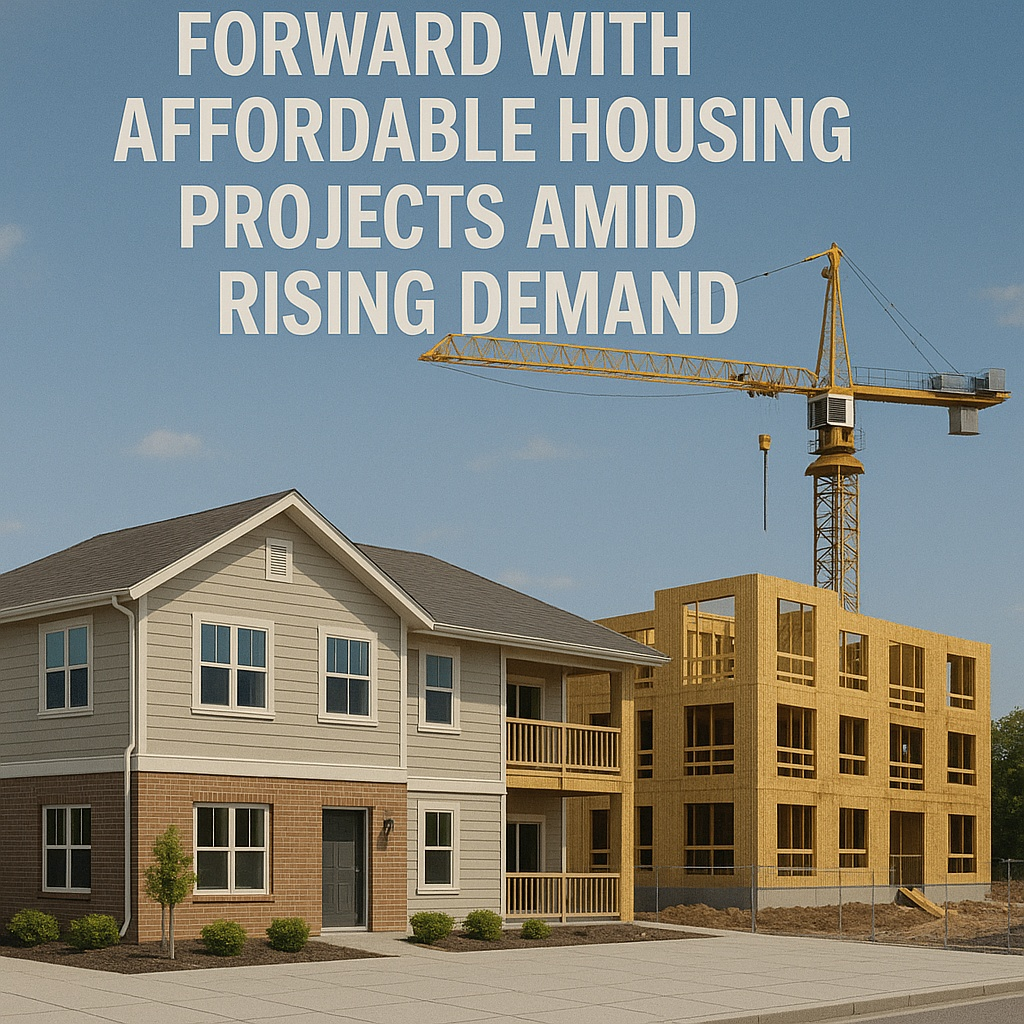Las Vegas, NV — As the population of Southern Nevada continues to grow, affordable housing has become one of the most pressing challenges for Clark County leaders. Local officials, developers, and nonprofit partners are working together to deliver new housing solutions aimed at addressing the region’s increasing demand, especially for low-income families and seniors.
A Growing Population and Rising Costs
Las Vegas remains one of the fastest-growing metropolitan areas in the United States, attracting tens of thousands of new residents each year. According to U.S. Census Bureau estimates, Clark County’s population now surpasses 2.4 million, a sharp increase compared to a decade ago. While growth brings economic opportunity, it also puts pressure on housing availability.
Over the past five years, median home prices in Las Vegas have nearly doubled, while rental rates continue to rise. For many working families, housing costs have outpaced wages, leaving them vulnerable to displacement or long waiting lists for affordable units.
County Response: The Welcome Home Fund
In 2022, Clark County Commissioners approved the Welcome Home Community Housing Fund, a $160 million initiative designed to accelerate the construction of affordable housing developments across the valley. This investment, one of the largest housing commitments in Nevada’s history, is already producing results.
Dozens of projects are underway, with developers breaking ground on senior housing complexes, supportive housing for vulnerable populations, and multi-family apartments for low-income households. Recent examples include the West Sahara Senior Housing Complex and a new project near North Las Vegas Boulevard that will add more than 200 units by 2026.
Commissioner Justin Jones, who represents portions of the southwest valley, emphasized that affordable housing is a key part of keeping Las Vegas economically strong. “We want to ensure that families, workers, and seniors can afford to live here without being forced out by rising costs,” Jones said during a recent commission meeting.
Partnerships Driving Progress
The county’s approach relies heavily on partnerships. Nonprofit organizations, such as Nevada HAND and HELP of Southern Nevada, are receiving grants to provide services alongside housing. Developers, including George Gekakis, Inc., are blending private financing with public funds to make projects viable.
At the federal level, assistance from the Department of Housing and Urban Development (HUD) and Low-Income Housing Tax Credits has been crucial. Combined with local funding, these resources make it possible for developers to keep rents affordable while still covering construction costs.
Residents Already Benefiting
For many seniors and families, the impact is life-changing. The recently completed West Sahara Senior Housing Complex, which offers 171 apartments, was fully leased before its ribbon-cutting ceremony. Rents start at $573 per month, including utilities, giving fixed-income residents a safe and stable place to live.
Local resident Maria Lopez, who moved into the complex earlier this year, said the affordability has provided peace of mind. “I was on a waiting list for almost three years. When I finally got the call, I cried with relief. This is more than an apartment — it’s a home,” Lopez said.
Challenges Ahead
Despite progress, housing demand in Las Vegas still exceeds supply. Affordable housing advocates estimate the county needs more than 85,000 additional affordable units to meet the needs of low-income residents. Rising construction costs, supply chain delays, and limited land availability make development difficult.
County officials are continuing to explore solutions, including zoning adjustments, land donations, and additional bond funding. Advocates say long-term commitment will be critical to closing the gap.
Why This Matters for Las Vegas
Affordable housing is not just a social issue — it is also tied to economic growth. As Las Vegas diversifies its economy beyond gaming and hospitality, stable housing is essential for attracting and retaining workers. Without affordable options, service industry employees, teachers, nurses, and first responders may struggle to live in the communities they serve.
With projects breaking ground across the valley, Clark County is showing that coordinated efforts can produce meaningful results. The success of the Welcome Home Fund may serve as a model for other rapidly growing cities facing similar challenges.
